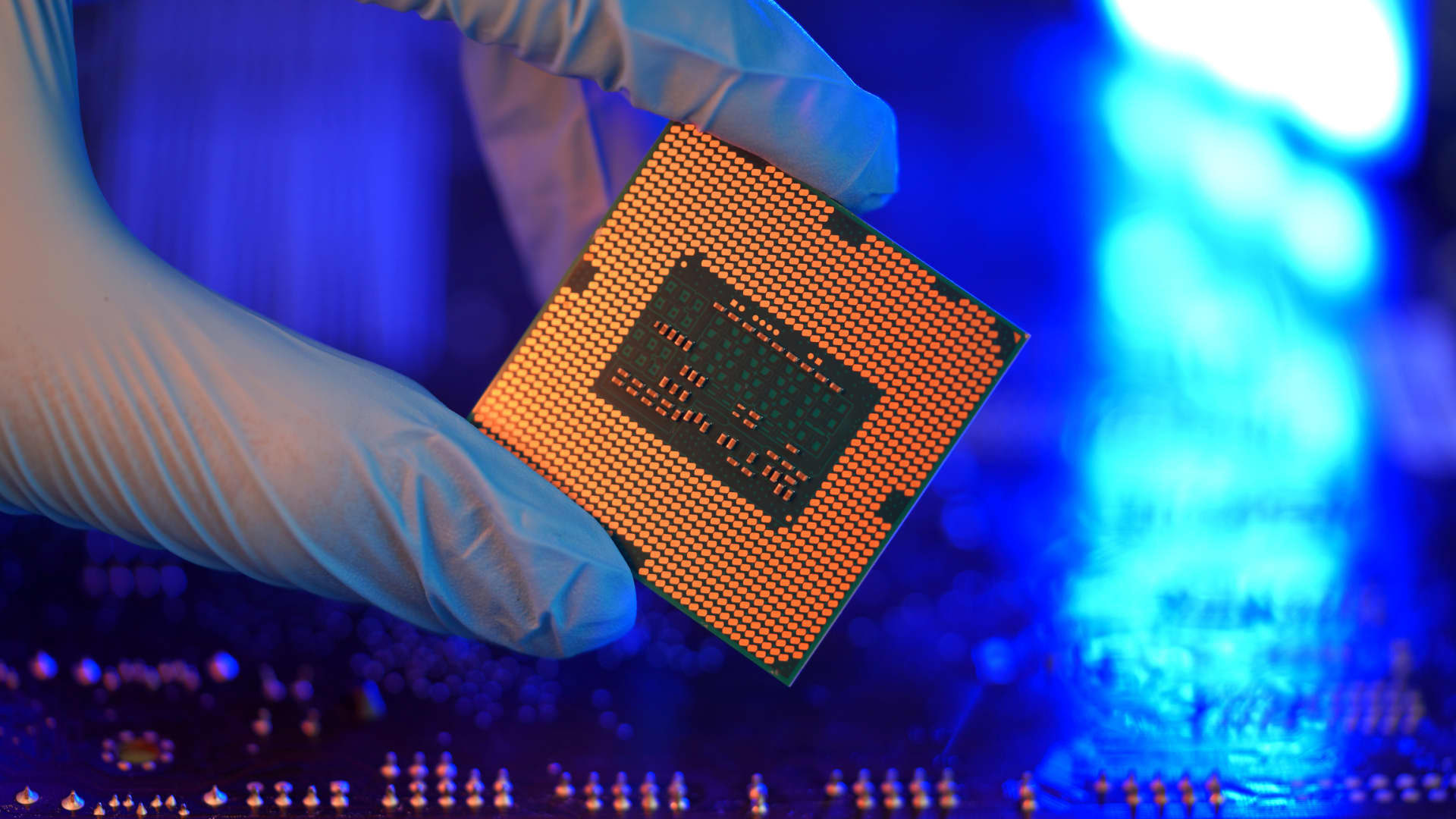

Close-up gloved hands holding detail microchip
Wong Yu Liang | Moment | Getty Images
Semiconductor firms such as Taiwan Semiconductor Manufacturing Company are at risk of water shortages as processing technology advances, S&P Global Ratings said in a report.
Semiconductor chips are found in everyday consumer devices from smartphones to TVs. TSMC is the world’s largest contract chipmaker and manufactures the most advanced processors for companies like Nvidia and Apple.
The chip making industry is a thirsty one, as factories consume vast amounts of water every day to cool machinery and ensure wafer sheets are free of dust or debris.
“There is a direct line between water use and chip sophistication, as fabs use ultrapure water — fresh water processed to extremely high purity — to rinse wafers between each process. The more advanced the semiconductor, the more process steps, the more water consumed,” said S&P Global Ratings credit analyst Hins Li.
TSMC’s water consumption per unit grew over 35% after it advanced to 16-nanometer process nodes in 2015, data from S&P revealed.
“We believe this was mainly due to the migration to advanced nodes, which require more fabrication processes,” S&P said. “Given TSMC’s dominance in advanced chipmaking, potential water-related disruptions to operations could disrupt the global tech supply chain.”
But the credit ratings firm noted TSMC’s dominance allows the chip giant to “lock in end demand and compensate for lower unit sales with price rises.”
“Should the company be able to maintain its technology leadership, the impact on TSMC’s business profile and profitability from any output volatility is likely manageable,” said S&P.
The Taiwanese chip giant makes around 90% of the world’s advanced chips that are used for AI and quantum computing applications.
TSMC could also focus on producing more advanced chips over typically lower-margin mature chips when there is a limited water supply, which S&P said could boost earnings.
The report noted that water consumption in the semiconductor industry is on track to increase by a mid- to high-single-digit percent each year, driven by capacity expansion and the demands of advancing process technology.
The world’s chipmakers already consume as much water as Hong Kong, a city with a population of 7.5 million, said S&P.
“Water security will be an increasingly important factor to semiconductor firms’ credit profiles. Mishandling of water resources could disrupt a firm’s operations, hurt financial performance, and potentially hit customer relationships,” said Li.
“Meanwhile, climate change is raising the rate of extreme weather, the frequency of drought, and the volatility of precipitation, limiting chipmakers’ ability to manage production stability.”




